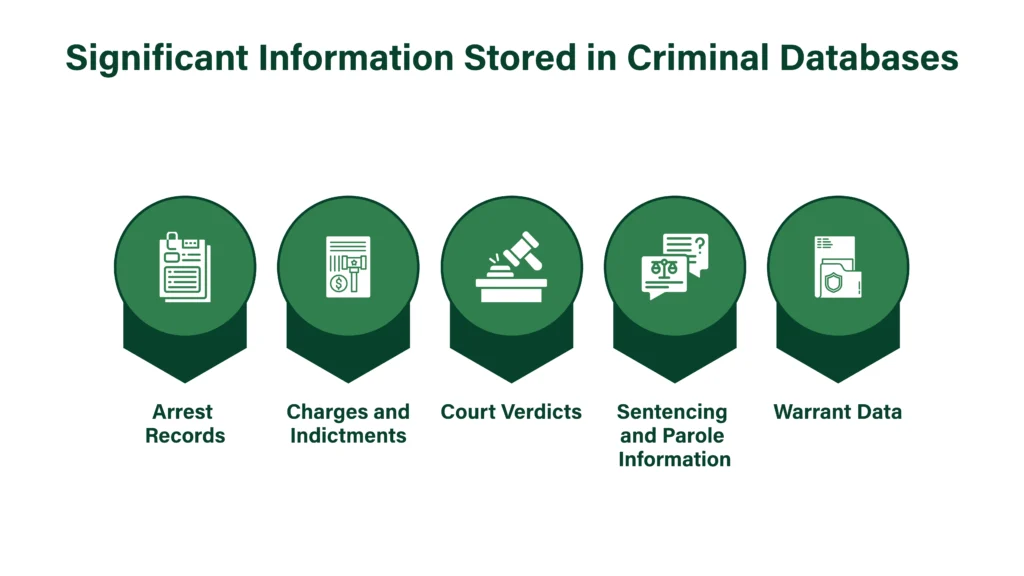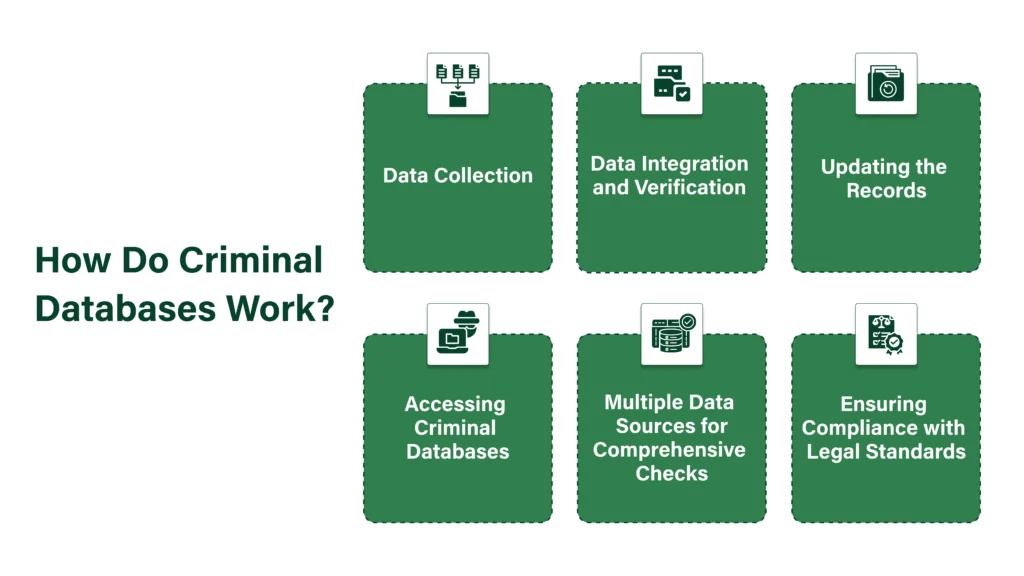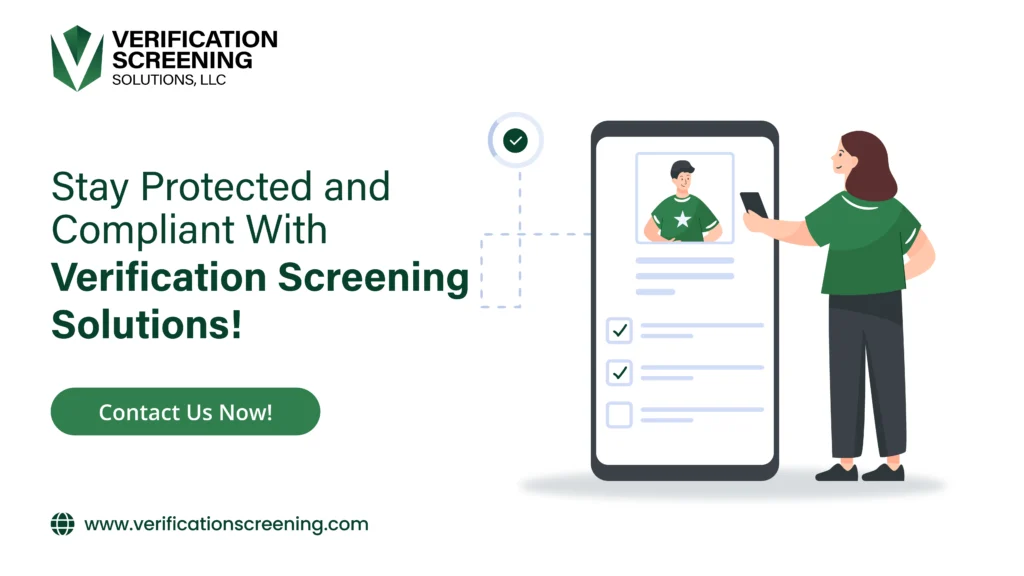Did you know that most businesses have experienced workplace violence incidents, and a lot of these incidents involved employees with prior criminal records? According to the Society for Human Resource Management (SHRM), 36% of companies reported incidents of workplace violence involving employees with a criminal record.
Hiring someone who seems perfect on paper, only to discover later that they have a criminal history involving theft or fraud, could be disastrous. It damages your company’s reputation and leads to legal trouble and financial losses.
According to the U.S. Department of Labor, a bad hire can cost an employer up to 30% of that individual’s first-year salary. That means a single bad hire earning $50,000 could lead to a $15,000 loss for the company!
Businesses must protect themselves from these liabilities by conducting thorough background checks, including criminal database searches. According to a survey, over 90% of businesses used criminal background checks for their hiring process. These databases provide important insights into an applicant’s legal history, helping organizations make better-informed hiring decisions.
However, criminal databases can be complex to navigate. They often include discrepancies due to variations in reporting standards across jurisdictions, and incomplete records can expose businesses to unnecessary risks. Organizations need reliable, up-to-date data to avoid costly mistakes.
A Closer Look at Criminal Databases
Criminal databases, often called database criminal repositories, are centralized repositories that store information about individuals arrested, charged, or convicted of criminal activities. These databases compile records from various sources, including local law enforcement agencies, courts, correctional facilities, and other judicial institutions.
The primary function of criminal databases is to provide accurate, comprehensive information to authorized entities, such as employers, landlords, law enforcement agencies, and background screening companies, enabling them to assess risks and make informed decisions.
Exploring the Different Types of Criminal Databases
The scope of criminal databases varies based on the type of database and the jurisdiction involved:
1. National Criminal Databases
These databases aggregate criminal records nationwide, offering a broad overview of an individual’s legal history. For example, the FBI’s National Crime Information Center (NCIC) is one of the most comprehensive criminal databases in the U.S., containing data on millions of individuals, including arrest records, warrants, and stolen property reports.
2. State-Level Criminal Databases
Managed at the state level, these databases collect and store records from courts, law enforcement, and correctional agencies within a specific state. Each state may have different protocols for updating and maintaining this information, resulting in variations in data availability and accuracy across the country.
3. Local or County-Level Criminal Databases
These contain records specific to a particular jurisdiction, such as a county or city. Local databases are often used to access the most detailed and up-to-date information, especially for recent arrests or charges that may not yet be reported to state or national databases.
4. Private Criminal Databases
These are maintained by third-party companies that compile data from various public sources and offer it to businesses for purposes such as background checks. Though not directly connected to government databases, private databases are widely used for pre-employment screening and tenant verification due to their convenience and accessibility.
A thorough criminal database search is essential for businesses looking to make informed hiring decisions. It ensures a safe and compliant workplace.
Significant Information Stored in Criminal Databases

The information stored in criminal databases is crucial for making informed decisions for employers, landlords, and individuals conducting background checks. Employers rely on this data to safeguard their workplace, protecting other employees and their company’s reputation. Landlords use it to ensure the safety of their properties and tenants. Individuals might review their records to verify accuracy and address potential issues.
Criminal databases provide essential insights that help prevent legal, financial, and reputational risks, ensuring decisions are made with a clear understanding of the associated risks.
Here are the main types of data found in these databases:
1. Arrest Records
Arrest records detail instances when law enforcement has taken an individual into custody. These records include the suspected crime’s date, location, and nature. While an arrest alone does not confirm guilt, it provides valuable insight into the person’s history with law enforcement.
Employers and landlords may review arrest records to evaluate potential risks associated with an individual’s past behavior, especially in positions or scenarios where trust is critically important.
2. Charges and Indictments
Charges and indictments detail the formal accusations made against individuals, specifying the crimes they are allegedly involved in. Indictments are issued after an investigation concludes that the case is significant enough to warrant a trial.
Knowing whether an individual has faced formal charges is crucial for employers, particularly when filling positions that demand high levels of integrity, responsibility, or access to sensitive information.
3. Court Verdicts
Court verdicts document the outcome of legal proceedings, including convictions, acquittals, or dismissals. A conviction confirms guilt, while a dismissal indicates the charges were dropped or the case did not proceed.
Such information helps distinguish between accusations and proven offenses, offering clarity to employers or landlords who must understand the full resolution of legal issues before making decisions.
4. Sentencing and Parole Information
Sentencing and parole information shows the penalties assigned to an individual following a conviction. It includes details on jail time, probation, community service, and parole conditions, if applicable.
For employers and landlords, understanding whether an individual is still under legal supervision or has completed their sentence is essential to assess risk and determine eligibility for a job or rental property.
5. Warrant Data
Warrant data includes information about active warrants issued by the court for an individual’s arrest, often for failing to appear in court or for new criminal charges. This data is essential for identifying individuals who are actively avoiding law enforcement.
Employers and landlords can use this information to avoid engaging with someone who may be involved in ongoing legal issues or at risk of further legal complications.
How Do Criminal Databases Work?

Criminal databases gather, organize, and provide access to an individual’s criminal history, drawing from various sources like law enforcement agencies, courts, and correctional facilities. Here’s a breakdown of how criminal databases operate:
1. Data Collection
The first step in maintaining a criminal database is data collection, which occurs at multiple levels.
Local law enforcement agencies collect arrest records, charges, and other legal data when an individual is arrested or involved in a criminal investigation. Courts provide information on legal proceedings, including charges, indictments, verdicts, and sentencing data. Correctional facilities contribute records related to incarceration, probation, and parole information. Each entity feeds data into the more extensive criminal justice system, which updates criminal databases at the county, state, and federal levels.
2. Data Integration and Verification
Once collected, the data is integrated into the database. In many cases, records from different sources must be cross-referenced and verified to ensure accuracy. This is crucial because data inconsistencies, such as various spellings of a name or incomplete case records, can lead to errors that might affect the reliability of a background check.
Integrating and verifying data ensures that the information provided to employers, landlords, or others is as accurate and complete as possible.
3. Updating the Records
Criminal databases undergo regular updates to accurately reflect changes in individuals’ legal statuses. For instance, if a conviction is overturned or a warrant is cleared, the database needs to be amended promptly to include these changes.
The frequency of updates can vary: some jurisdictions provide real-time updates, while others may experience delays, potentially leading to discrepancies. Consistent and timely updates are essential to maintain the accuracy and reliability of the data for background checks.
4. Accessing Criminal Databases
Access to criminal databases is generally limited to authorized parties, including law enforcement agencies, background screening companies, and occasionally employers or landlords carrying out lawful checks.
National databases, such as the FBI’s National Crime Information Center (NCIC), are predominantly accessible to law enforcement officials. In contrast, private entities like Verification Screening Solutions offer access to public records for conducting background checks in employment or tenant screening scenarios. These databases are accessible online, where authorized users can search using names, Social Security numbers, or other unique identifiers to pull relevant records.
5. Multiple Data Sources for Comprehensive Checks
Background screening companies often cross-check multiple sources to compile a more accurate and complete criminal history because no single database is comprehensive. For example, local or county-level databases may contain the most up-to-date information about recent arrests. On the other hand, state or national databases provide broader data on past convictions or sentences. By combining these resources, companies can get a fuller picture of an individual’s legal history.
6. Ensuring Compliance with Legal Standards
Criminal databases must operate within legal frameworks like the Fair Credit Reporting Act (FCRA) in the U.S., which governs how background checks are conducted and ensures that individuals’ rights are protected.
For example, the FCRA requires that employers notify applicants if adverse action is taken based on their criminal history and that applicants can dispute inaccuracies in their reports. Additionally, some jurisdictions have specific laws, such as “ban-the-box” laws, which regulate how and when criminal history can be used in hiring decisions.
Criminal Databases and Compliance
When using criminal databases for background screening, businesses must navigate a complex web of legal regulations to ensure compliance with federal, state, and sometimes local laws.
Fair Credit Reporting Act (FCRA)
The FCRA is a federal law that regulates how businesses can use consumer information, including criminal records, for background screening. Initially enacted in 1970, the law outlines several critical protections for individuals and responsibilities for employers, ensuring that criminal databases are used fairly during hiring processes.
Under the FCRA, employers who use criminal databases for background checks must comply with the following requirements:
1. Disclosure and consent
The Fair Credit Reporting Act (FCRA) requires employers to inform candidates in writing that a background check will be conducted solely to make a hiring decision. This disclosure ensures transparency and keeps hiring practices in line with federal law.
Proper disclosure allows candidates to review the background check results, correct errors, or dispute inaccuracies. This ensures employers receive reliable information on which to base their hiring decisions.
Failing to disclose or obtain consent can lead to legal repercussions, including fines or lawsuits. Disclosure and consent protect employers by maintaining compliance and minimizing the risk of costly legal issues.
Employers can move forward with the background check only after the candidate has given written consent stating that they are okay with the screening process.
2. Adverse Action Procedures
Under the Fair Credit Reporting Act (FCRA), there’s a two-step process employers must follow in case of adverse action:
- Pre-Adverse Action Notice: Before making a final decision, the employer must give the applicant a copy of the background check report and a summary of their rights under the FCRA. This step allows the applicant to review the report, correct any inaccuracies, or provide context.
- Adverse Action Notice: If the employer decides to proceed with adverse action after allowing time for the applicant’s response, they must send a notice with the following:
- The name, address, and phone number of the consumer reporting agency that provided the report.
- A statement that clarifies that the agency didn’t make the hiring decision and cannot explain its reasons.
- Information on the individual’s right to dispute the accuracy or completeness of the report.
Following these steps ensures transparency, gives applicants a fair chance to address any potential errors, and keeps employers in compliance with FCRA guidelines.
The FCRA ensures that criminal background checks are conducted fairly and transparently, protecting individuals from discrimination or inaccuracies that could unjustly impact their employment opportunities.
3. Accuracy and Currency of Information
Employers are responsible for ensuring the accuracy and currency of the information used in background checks. The Fair Credit Reporting Act requires employers to take reasonable steps to verify that the information they rely on is as accurate and up-to-date as possible.
Relying solely on outdated or incomplete databases without cross-referencing with primary sources can lead to errors in the background check process, potentially resulting in non-compliance. Employers must ensure the information is thoroughly verified and reflects current data to maintain compliance and avoid legal issues. This responsibility protects the candidate’s rights and ensures that employers make informed and fair hiring decisions.
State Laws: Ban-the-Box and Beyond
In addition to the FCRA, many states have laws regulating how employers can use criminal records in hiring decisions. One of the most notable trends is ban-the-box legislation, which restricts when and how employers can ask about an applicant’s criminal history during the hiring process.
Ban-the-box laws typically require employers to remove questions about criminal history from job applications, delaying the inquiry until later in the hiring process. The goal is to prevent immediate disqualification based on past convictions and give applicants a fair chance to be evaluated on their qualifications before their criminal history is considered. Some states, like California and New York, have expanded ban-the-box laws to apply to public and private sector jobs.
Other states may have specific laws regarding what types of criminal records can be used in hiring decisions. For example:
- Certain minor offenses or convictions older than a specified number of years may not be allowed for consideration.
- Some jurisdictions limit the use of arrest records that do not result in a conviction.
- Employers may be required to consider the nature of the crime, its relevance to the job, and the time that has passed since the offense.
Understanding these state laws is essential for businesses to avoid legal penalties and ensure they are not violating anti-discrimination statutes.
Impact of “Ban-the-Box” Laws on Using Criminal Records for Hiring Decisions
“Ban-the-box” laws and similar state-specific regulations impact how employers use criminal records in hiring. Key effects include:
- Delaying Criminal History Questions: Employers must remove criminal history questions from initial applications, allowing candidates to be considered based on qualifications.
- Individualized Assessments: These laws require employers to assess criminal records on a case-by-case basis, considering factors like the nature of the offense and its relevance to the job.
- Timing of Background Checks: Background checks are often delayed until after an initial interview or conditional job offer, ensuring criminal history is only considered later in the process.
- Compliance with Local Laws: To avoid legal risks, employers must follow state and local laws, as regulations vary by jurisdiction.
- Fairer Hiring Practices: These laws promote transparency and fair treatment, reduce bias, and encourage equal opportunity for candidates with criminal backgrounds.
Overall, “ban-the-box” laws help ensure criminal records are not used to automatically disqualify candidates, encouraging fairer and more thoughtful hiring decisions.
Stay Protected and Compliant With Verification Screening Solutions!

At Verification Screening Solutions, we offer a full suite of services to help you navigate the complexities of compliance while ensuring that you make informed, responsible hiring decisions.
Our comprehensive offerings include:
- County Level Criminal Search
- Statewide Criminal Search
- Federal Criminal Search
- National Searches
- Motor Vehicle Report (MVR)
- Sex Offender Search
- Federal Civil Search
- County Level Civil Search
- SSN Trace
- Employment Verification
- Education Verification
- Fingerprinting
Discover how our customized services can help you remain compliant while securing suitable candidates for your organization. Start confidently—your business deserves nothing less than the best background screening and verification.
Contact Verification Screening Solutions today!

